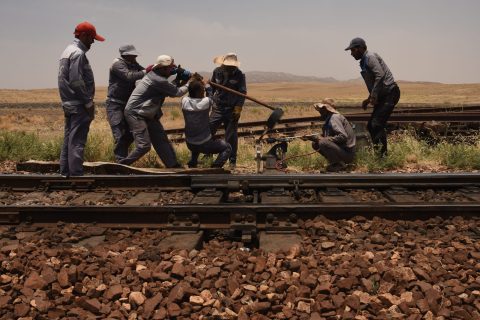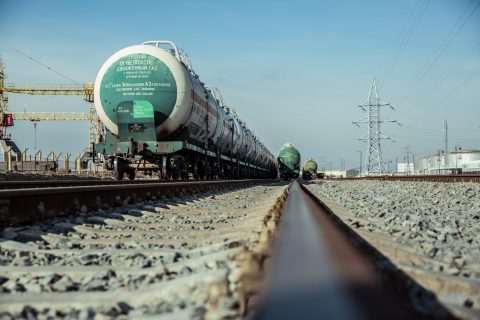Piraeus port: records, disbelief and a chance for more rail

The greek port of Piraeus recorded the highest revenues in its history and increased volumes turnover in 2021. At the same time, it faces court decisions ruling that expansion projects of previous years were illegal due to insufficient environmental assessment. All that takes place at a time when the port’s role in Eurasian transport could become even more critical.
Piraeus Port Authority, owned in its majority by COSCO Shipping since 2016, announced that its annual turnover for 2021was 154,2 million euros compared to 132,9 million euros in 2020, recording an increase of € 21,3 million or 16 per cent. “The amount is the highest level of profitability in the PPA history”, mentioned the company.
“The continuous increase in the company’s turnover despite the difficulties we have all faced in the past due to the pandemic reveals a highly resilient company built on solid foundations. [..] We will continue our dynamic, sustainable growth path while staying true to our vision of expanding Greece’s Piraeus port into the biggest harbour in Europe”, said PPA’s chairman Yu Zenggang. However, this expansion seems unfounded, in a time that Piraeus could become Europe’s gateway to China.
Greek court blocks expansion
A few days ago, Greece’s highest administrative court, the Council of State, ruled against the expansion plans of Piraeus’ port worth 4,3 billion euros since they did not provide a sufficient environmental impact assessment. The Greek Court blocked the expansion and building of a new passenger terminal, the expansion of the vehicle import terminal and the construction of new warehouses.
COSCO’s presence in the port of Piraeus keeps fuelling public discourse in Greece despite the profitable results since many voices claim that the port’s investment projects and expansion do not comply with the law. The port of Piraeus is under public questioning while the Eurasian transport industry looks at it as a supply chain alternative to the disruptions caused by the war in Ukraine.
Momentum for more rail?
A few days earlier, in the webinar ‘Keeping cargo on rail between Europe-Asia’ organised by RailFreight.com and RailFreight.cn, Nils Müller, manager rail at DSV global transport and logistics, mentioned that Piraeus is currently among the leading solutions for Eurasian transport. With New Silk Road rail routes blocked or unable to handle increased demand, Piraeus could function as the European gateway for Asian cargo.
However, it seems that the Greek port does not use its momentum. Apart from expanding the port facilities, investments in rail links connecting it with central Europe have been neglected. Ocean Rail Logistics, a subsidiary of COSCO, runs regular services between the Greek port and central Europe. Rail Cargo Group is also active in the route since 2018. Nevertheless, as Müller explained, this is not a well functioning corridor despite its potential.
This is due to heavy construction taking place in the Greek railway network and Corridor X running from Greece to central Europe through the Balkans. This is not all, though, as connectivity is also an issue. For instance, the services running from Piraeus to Budapest are not sufficient to handle all the capacity demand, while an expansion towards northern Europe and the Benelux is still not in place. Consequently, Piraeus is not the first option for companies using sea-rail connections despite all the potential it has in terms of port capacity and location.
Also read:
-
From sea to land, rail transforms transport through the Balkans
-
Greek government calls for investments, railway still underdeveloped
You just read one of our premium articles free of charge
Want full access? Take advantage of our exclusive offer




